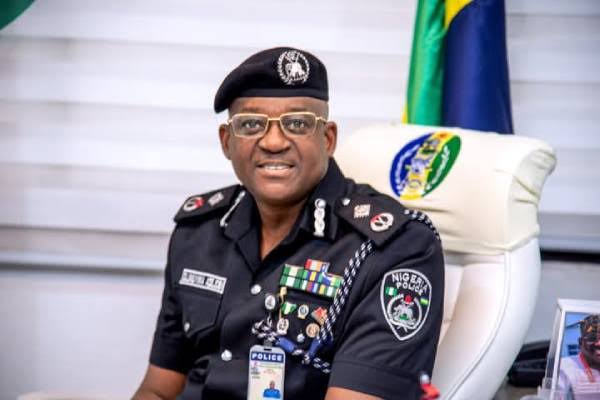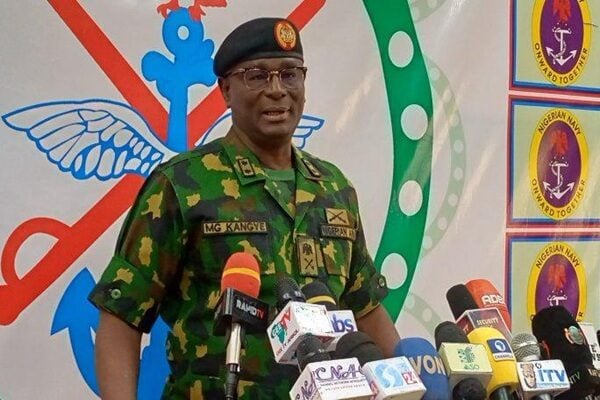In a significant development within the Nigeria Police Force (NPF), Olumuyiwa Adejobi, the former Force Public Relations Officer (FPRO), has been promoted to the rank of Deputy Commissioner of Police (DCP) and redeployed to the Delta State Police Command as Deputy Commissioner of Police, Operations. This announcement, made on September 3, 2025, by the Inspector-General of Police, Kayode Egbetokun, marks a pivotal moment in Adejobi’s illustrious career and underscores the NPF’s commitment to strategic leadership deployment in addressing Nigeria’s complex security challenges. The move, approved by the Police Service Commission (PSC), has been described as a routine yet strategic posting, positioning Adejobi to lead critical operations in one of Nigeria’s most operationally sensitive states.
This article delves into the details of Adejobi’s promotion and redeployment, his contributions to the NPF, the security dynamics in Delta State, and the broader implications for Nigeria’s policing and internal security architecture. It also examines the controversies surrounding Adejobi’s tenure as FPRO and the challenges he may face in his new role, offering a comprehensive analysis of this significant development.
Adejobi’s Career: A Journey of Service and Excellence
Olumuyiwa Adejobi’s ascent to the rank of Deputy Commissioner of Police is a testament to his dedication, professionalism, and extensive experience in law enforcement. A graduate of the University of Ibadan, where he earned a Bachelor’s degree in Archaeology and Geography (Combined Honours) and a Master’s degree in Peace and Conflict Studies, Adejobi brings a unique blend of academic rigor and practical expertise to his policing career. His journey in the NPF began with roles in operational and administrative capacities, including serving as Police Public Relations Officer (PPRO) for Ogun State Command from 2008 to 2016, Zone 2 Headquarters in Lagos in 2016, and Lagos State Command from 2020 to 2021.
Adejobi’s appointment as FPRO in February 2022, initially in an acting capacity, marked a turning point in his career. Succeeding CP Frank Mba, he was later confirmed by then-Inspector-General Usman Alkali Baba. As FPRO, Adejobi became the public face of the NPF, tasked with managing the force’s image, communicating policies, and engaging with the media and public. His tenure was marked by efforts to modernize police communication, enhance transparency, and rebuild public trust in an institution often criticized for human rights abuses and inefficiency.
Under Adejobi’s leadership, the NPF’s communication strategy saw significant advancements. He leveraged social media platforms, particularly X, to engage directly with citizens, address public concerns, and provide updates on police activities. His dynamic approach to public relations earned him praise from within and outside the force, with many describing him as a disciplined and proactive officer. However, his tenure was not without controversy, as some of his public statements and actions drew criticism from human rights advocates and activists, a point we will explore later.
The Promotion and Redeployment: A Strategic Move
Adejobi’s promotion to DCP and redeployment to Delta State as Deputy Commissioner of Police, Operations, reflect the NPF’s strategic approach to leadership deployment. The PSC’s approval of his elevation underscores his record of professionalism and service excellence, while his new role places him at the forefront of security operations in a state known for its complex challenges.
As DCP Operations, Adejobi will oversee tactical deployments, supervise field operations, and lead anti-crime strategies across Delta State. His responsibilities include coordinating security operations, tackling violent crimes such as armed robbery, kidnapping, and oil theft, and strengthening police-community relations. Delta State, located in Nigeria’s oil-rich Niger Delta region, is a critical theater in the nation’s internal security architecture, with a history of militancy, communal clashes, and economic crimes.
The NPF has emphasized that Adejobi’s redeployment is not punitive but part of routine career progression and administrative restructuring. Senior officers at Force Headquarters have dismissed reports suggesting that Adejobi was “controversially removed” as FPRO, clarifying that his new role leverages his extensive experience in public communication, operational management, and community policing. A source within the force noted, “The deployment of officers is a normal administrative procedure in the Nigeria Police Force. DCP Adejobi’s record of professionalism, commitment, and service excellence made him a natural fit for this crucial operational responsibility.”
The Inspector-General of Police, Kayode Egbetokun, commended Adejobi for his outstanding service as FPRO, highlighting his contributions to improving the force’s communication strategies and public image. Egbetokun expressed confidence that Adejobi would bring the same level of dedication to his new assignment, stating, “His redeployment further highlights the Nigeria Police Force’s commitment to merit-based advancement and the strategic deployment of its top officers where their expertise is most needed.”
Delta State: A Complex Security Landscape
Delta State presents a unique set of challenges and opportunities for Adejobi in his new role. As one of Nigeria’s most operationally sensitive states, Delta is a hub of economic activity due to its oil and gas resources, but it is also a hotspot for security threats. The state has faced persistent issues, including:
Oil Theft and Illegal Bunkering: Delta State is a focal point for oil theft, a multi-billion-dollar criminal enterprise that deprives Nigeria of significant revenue. Illegal bunkering activities, often linked to organized crime syndicates, have fueled violence and environmental degradation in the Niger Delta. Adejobi’s role will involve coordinating operations to curb these activities, working closely with security agencies and private sector partners like TANTITA Security Services, which recently built a police station in Ugborikoko to enhance local policing.
Kidnapping and Armed Robbery: Kidnapping for ransom and armed robbery are prevalent in Delta State, posing significant threats to residents and businesses. Adejobi’s experience in operational management will be critical in developing strategies to combat these crimes, including intelligence-led policing and community engagement.
Communal Clashes: Communal disputes over land, resources, and chieftaincy titles have led to violence in parts of Delta State. Strengthening police-community relations, a key aspect of Adejobi’s mandate, will be essential to resolving these conflicts and fostering peace.
Militancy and Insurgency: The Niger Delta has a history of militancy, with groups like the Movement for the Emancipation of the Niger Delta (MEND) disrupting oil production in the past. While militancy has decreased in recent years, the potential for resurgence remains, requiring proactive policing and engagement with local stakeholders.
Adejobi’s background in community policing and public communication positions him well to address these challenges. His ability to build trust with local communities, communicate effectively with stakeholders, and coordinate multi-agency operations will be critical to his success in Delta State.
Controversies and Criticisms: A Polarizing Figure
Despite his achievements, Adejobi’s tenure as FPRO was not without controversy. His public statements and actions drew criticism from human rights advocates and activists, particularly on social media. In March 2023, Adejobi tweeted that “hurling insults at police officers carrying out their legal duty is criminal,” a statement that critics argued encouraged authoritarian policing and stifled free speech. In February 2024, as kidnapping cases surged nationwide, Adejobi dismissed many reports as “staged” or “fake,” drawing backlash from victims’ families and human rights groups. He stated, “Most of the kidnapping cases we read online are not real. They are either staged and faked. We analyse security situations based on empirical facts and figures.”
One particularly controversial incident involved allegations that Adejobi instructed a cameraman, Aku Victor Chimerie, to steal human rights activist Omoyele Sowore’s Ray-Ban glasses during a protest. The incident, captured on video, led to public outrage and a petition by human rights lawyer Deji Adeyanju to the United States embassy to revoke Adejobi’s visa. Sowore described Adejobi as “one of the worst policemen ever recruited into the Nigeria Police Force,” accusing him of repressing social media users and shielding the NPF from accountability.
Police authorities have dismissed these allegations as misleading, emphasizing that Adejobi’s redeployment was not punitive but part of routine administrative procedures. However, the controversies highlight the challenges of balancing public relations with operational duties in a country where the police force faces significant public scrutiny. Adejobi’s ability to navigate these criticisms and focus on his new role will be crucial to his success in Delta State.
Implications for Nigeria’s Policing and Security
Adejobi’s promotion and redeployment have broader implications for Nigeria’s policing and internal security architecture:
Strengthening Operational Leadership: The NPF’s decision to deploy Adejobi to Delta State reflects a strategic approach to placing experienced officers in critical roles. His expertise in operational management and community policing will enhance the force’s ability to address complex security challenges in the Niger Delta.
Improving Police-Community Relations: Adejobi’s background in public communication positions him to bridge the trust gap between the police and Delta State’s communities. By engaging with local leaders, youth groups, and civil society, he can foster collaboration and reduce tensions that often exacerbate security issues.
Enhancing Public Perception: Adejobi’s tenure as FPRO demonstrated the importance of effective communication in shaping public perception of the police. His redeployment to an operational role does not diminish this legacy, as his successor, CSP Benjamin Hundeyin, is expected to build on these efforts.
Addressing Systemic Challenges: The controversies surrounding Adejobi’s tenure highlight systemic issues within the NPF, including allegations of human rights abuses and lack of accountability. His new role offers an opportunity to demonstrate the force’s commitment to reform and professionalism.
Challenges and Opportunities in Delta State
Adejobi’s new role in Delta State presents both challenges and opportunities. The state’s complex security landscape requires a multifaceted approach, combining intelligence-led policing, community engagement, and collaboration with other security agencies. Key challenges include:
Resource Constraints: The NPF faces resource limitations, including inadequate funding, equipment, and personnel. Adejobi will need to maximize available resources to achieve results.
Public Trust: Building trust with Delta State’s communities, many of which have historical grievances against the police, will be critical to his success.
Coordination: Effective coordination with other security agencies, such as the military and the Department of State Services (DSS), is essential to address oil theft and militancy.
Opportunities include leveraging Delta State’s economic importance to secure additional resources, engaging with private sector partners like TANTITA, and using his communication skills to foster dialogue with local stakeholders.
Conclusion: A New Chapter for Adejobi and the NPF
Olumuyiwa Adejobi’s promotion to Deputy Commissioner of Police and redeployment to Delta State mark a new chapter in his career and a strategic move by the Nigeria Police Force to strengthen its operational leadership. His extensive experience, coupled with his proven track record in public communication and community policing, positions him to make a significant impact in one of Nigeria’s most challenging regions. While controversies from his tenure as FPRO linger, the NPF’s confidence in his abilities underscores its commitment to merit-based advancement and strategic deployment.
As Adejobi takes on this critical role, he faces the daunting task of addressing Delta State’s security challenges while rebuilding public trust. His success will depend on his ability to navigate complex dynamics, leverage his expertise, and foster collaboration with stakeholders. For Nigeria, this development represents an opportunity to enhance internal security, improve police-community relations, and demonstrate the NPF’s commitment to professionalism and reform.
The transition also marks a moment of continuity for the NPF, as CSP Benjamin Hundeyin, the outgoing PPRO for Lagos State, steps into the role of FPRO. With Adejobi’s legacy of modernizing police communication as a foundation, Hundeyin is poised to continue engaging the public effectively. As Nigeria grapples with evolving security threats, Adejobi’s redeployment signals a renewed focus on operational excellence and community engagement, offering hope for a safer and more secure future.






